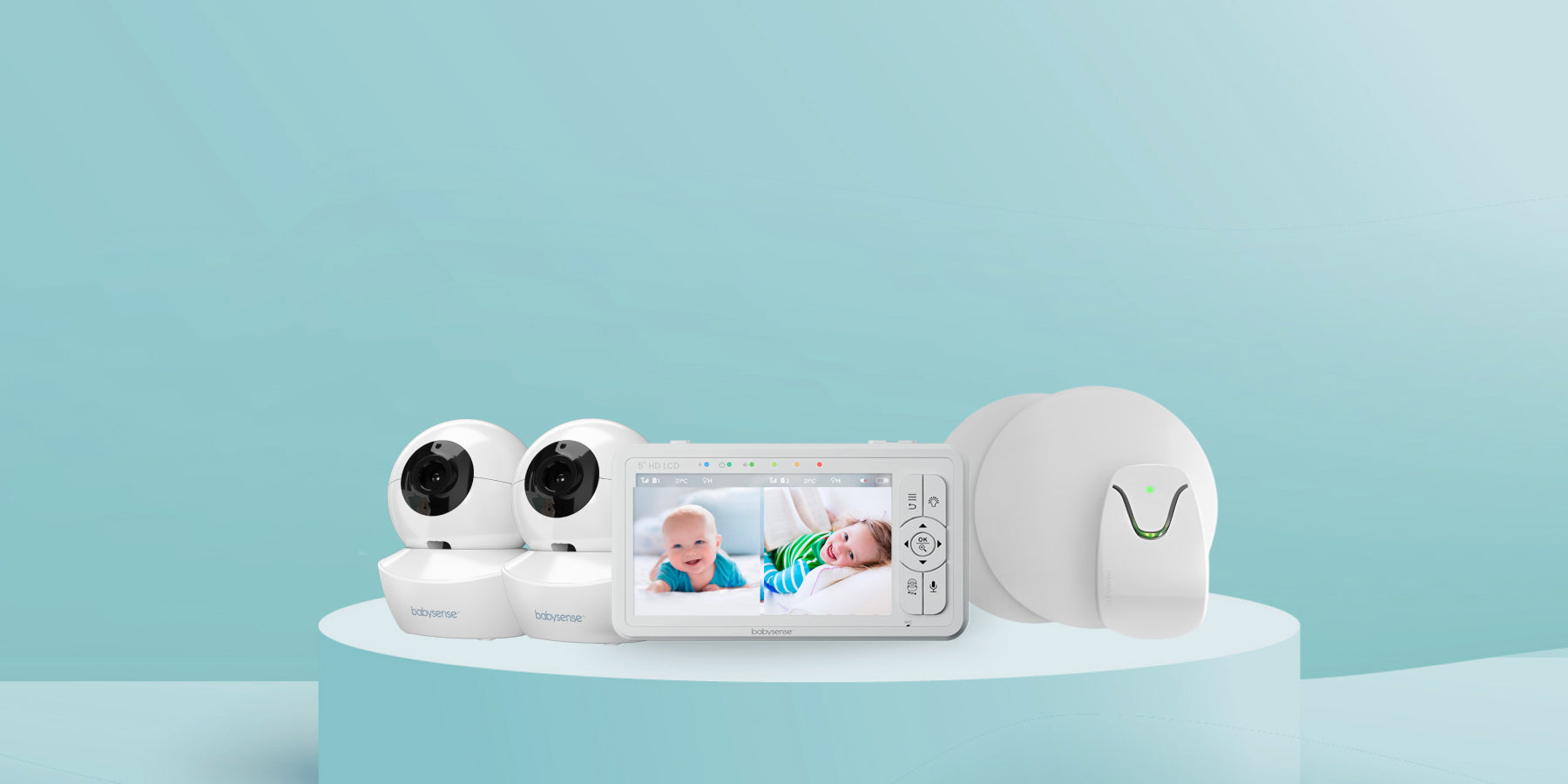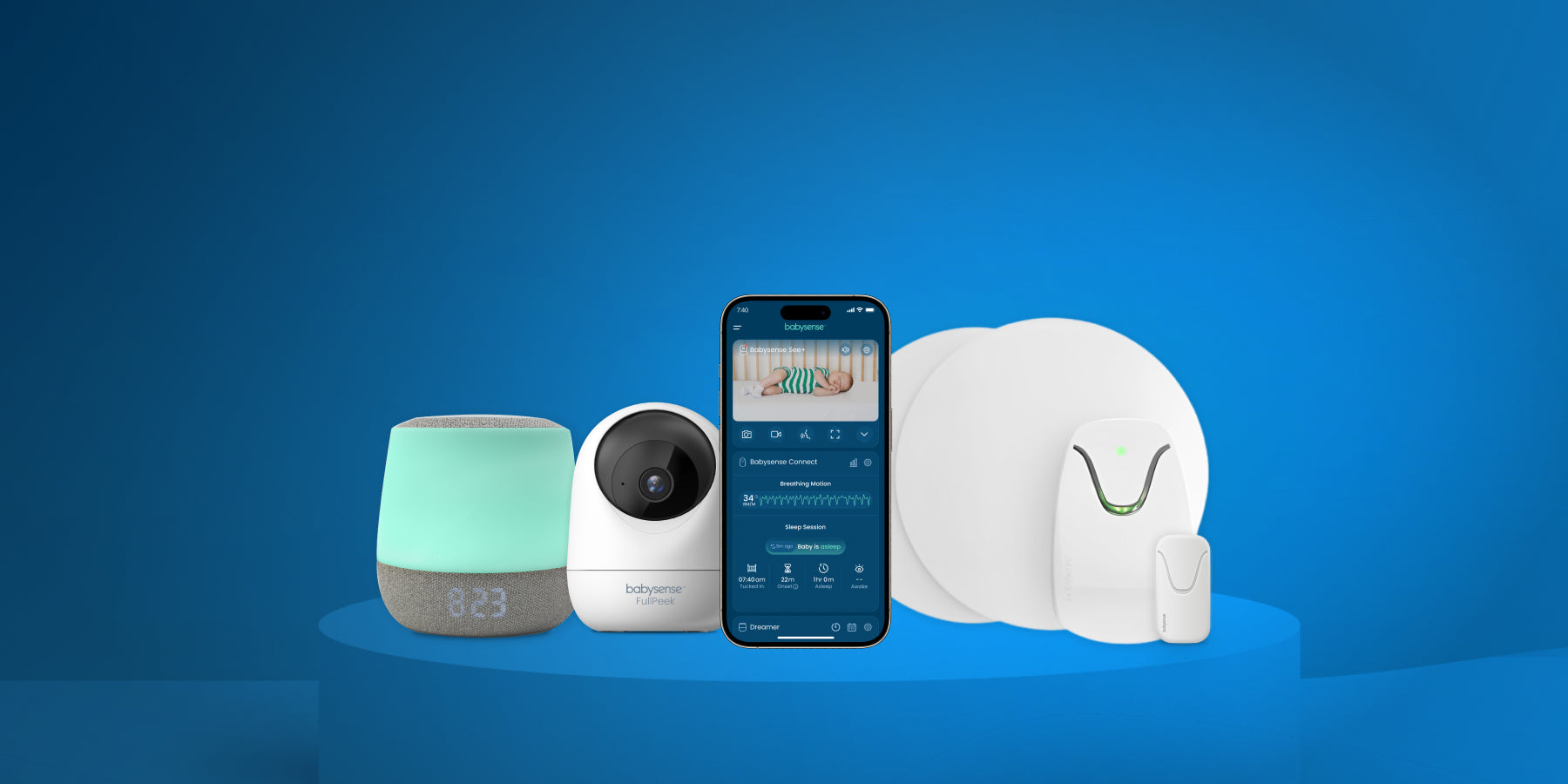Almost every mom’s greatest challenge is a full night sleep in the first year! We crave sleep and look forward to the day (or night) when we know no one will wake us at 2am for a feed, nappy change, cuddle or dummy! In an attempt to get a full night’s sleep, many a mom will look to formula feeds to help her little one ‘sleep through the night’. The big question is does breastfeeding negatively affect sleep? The answer is that how and what your baby is fed will affect her sleep BUT a breastfed baby can sleep just as well as any other baby. Here are the ways breastfeeding affects sleep:
The breastfed newborn is more likely to fall asleep on the breast
My newborn keeps falling asleep on the breast. Each time I feed her, she sucks well for about five minutes and then before I know it, she is away with the fairies - fast asleep. Not only is this frustrating as I wonder if she has got enough food to last her for the next three hours, but I am also worried that we are developing a bad habit of her always falling asleep on the breast. Please help.
Milk of any sort induces sleep but breast milk is all the more likely to send your baby to sleepy land. The reason is that breast milk is full of Oxytocin, which this is one of those happy hormones that make you really drowsy. In addition, the work of sucking is a calming motion and many babies use sucking to fall asleep. So between the sucking, sweet taste of milk and the hormones, it’s no wonder our newborns fall asleep on the breast!
The good news is that this is unlikely to result in poor sleep habits in a newborn because newborns do not have long term memory until around 4 months of age. To manage this concern as your baby approaches three months of age, rouse your baby as you take her from the breast. As you burp her, wake her up a little and then settle her into her bed so she can self sooth to fall asleep in this drowsy state.
At around 4-6 months of age, your baby’s nutritional needs change and you may need to adjust your feeding pattern.
My baby is 5 months old now and is breastfed, except for a single formula bottle feed, which she has at daycare at about 2:30 pm. She generally goes three hours between feeds, as she gets hungry and very cranky if we try stretching her between feeds. She has slept beautifully in a routine since she was about 8 days old, and goes to bed at approx. 6:30 at night. She used to sleep all the way through until 6 am, then the onset of summer turned it into 5 am, and now it's closer 4 am or even, like this morning, 3:30 am! She actually wakes us up with her babbling and crowing, which goes on for about 5 to 10 minutes, after which she gets bored, and starts crying. I then feed her and put her to bed (with some difficulty sometimes) until about 5:30 am when she wakes us in the same way. People are saying she's hungry - but she never appears hungry otherwise - what do you think is happening?
At your baby’s age and without solid food in her diet, it is quite appropriate for her to be requesting a feed at night and so you are doing the right thing by breastfeeding her at night. When she wakes, listen to her ‘babbling and crowing’ and only respond once she is crying – this will give her the chance to resettle to sleep if she is able to. Encourage the use of a sleep soother and always have it available to her should she need comfort. Put her in a special night nappy at bedtime, as she may be waking because she is wet and uncomfortable. If you do have to feed her, keep it as business like as possible - no lights on, no nappy change and no chatting. Put her straight down after the feed and she will be more likely to go back to sleep with ease.
If she starts consistently waking earlier and earlier, then introducing solids may be on the cards, so do ask your clinic sister for advice.
Breastfeeding at night can become a habit that wakes your baby when he is past the age when night feeds are appropriate.
My baby is eight months old and wakes up roughly every 2 hours. She is a very light sleeper and is woken up by the slightest sounds, like her dad’s snoring. She sleeps in her pram next to my bed as I only have one bedroom in my house. Once she’s up, she will only go back to sleep if I breastfeed her to sleep. I tried giving her water or juice to drink but she turns her head away and cries until she gets the breast.
To be on the safe side, your doctor needs to rule out any medical problems that may be causing her to wake so frequently. Check with your well baby nurse that she is getting enough nutrition in the day, and then you will know for sure that she does not need feeding in the night. Night feeds for an eight-month-old baby should not be necessary. Until you are ready to take the step of no longer offering her a feed when she wakes, no sleep training will work, and she will never learn how to self sooth. Do not feed to settle her, no matter how much she is crying. Rather hold her, rock her (offer her sips of water if she has been crying for a long time and may be thirsty). It will take her a few nights to learn to fall asleep without a feed.
When she is falling back asleep in your arms (without a feed), then start putting her in her pram when she is merely drowsy, but not asleep. Always pick her up and console her if she won't settle with a few pats and soothing words. Only put her back in her pram once she has stopped crying. If you want to change things, you have to follow through on this in a consistent manner. Try to focus on the positive benefits of teaching her to go to sleep on her own, rather than getting bogged down with your fatigue now.
By Meg Faure





